Thailand – A Report
I spent the last 3 weeks traveling through Thailand – and together with my wife, I collected a lot of pictures and super deep philosophical impressions that I brought back with me.
Key Facts:
- 16.07.2019 – 19.07.2019 Bangkok
- 19.07.2019 – 25.07.2019 Ko Pha-ngan
- 25.07.2019 – 31.07.2019 Phuket
Bangkok ¶
Bangkok doesn’t feel like a big city when you’re in the middle of it. More like a gigantic village. It’s mostly not very tall, but rather built flat, and everyone seems to be cooking their own soup at every corner.
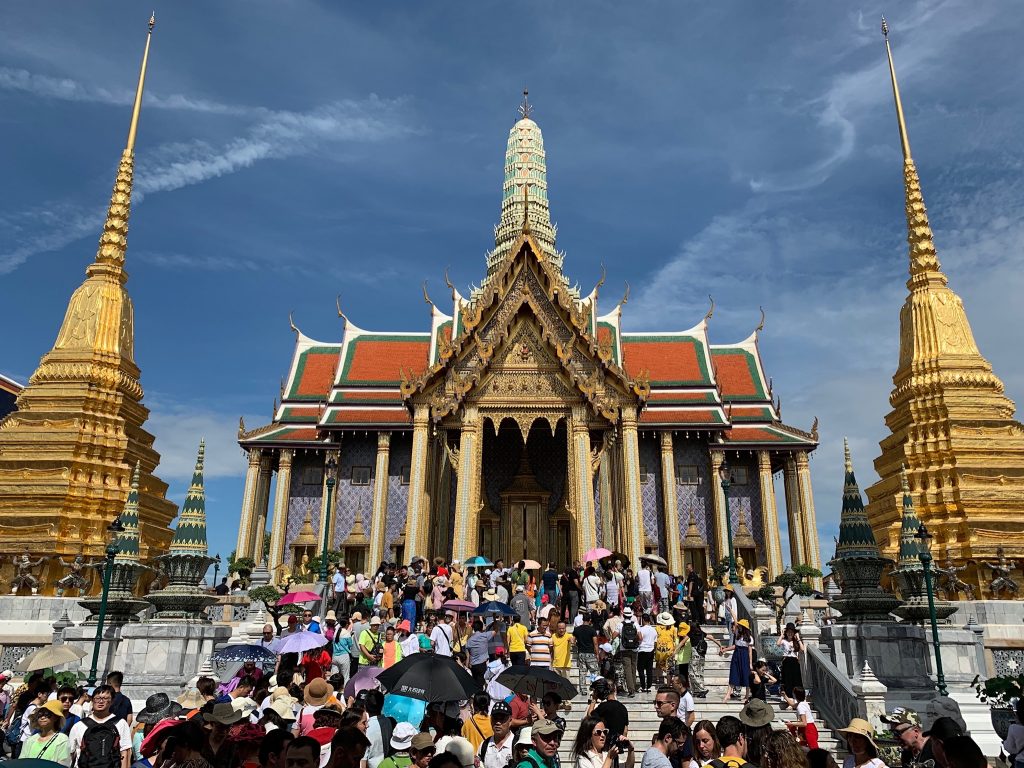
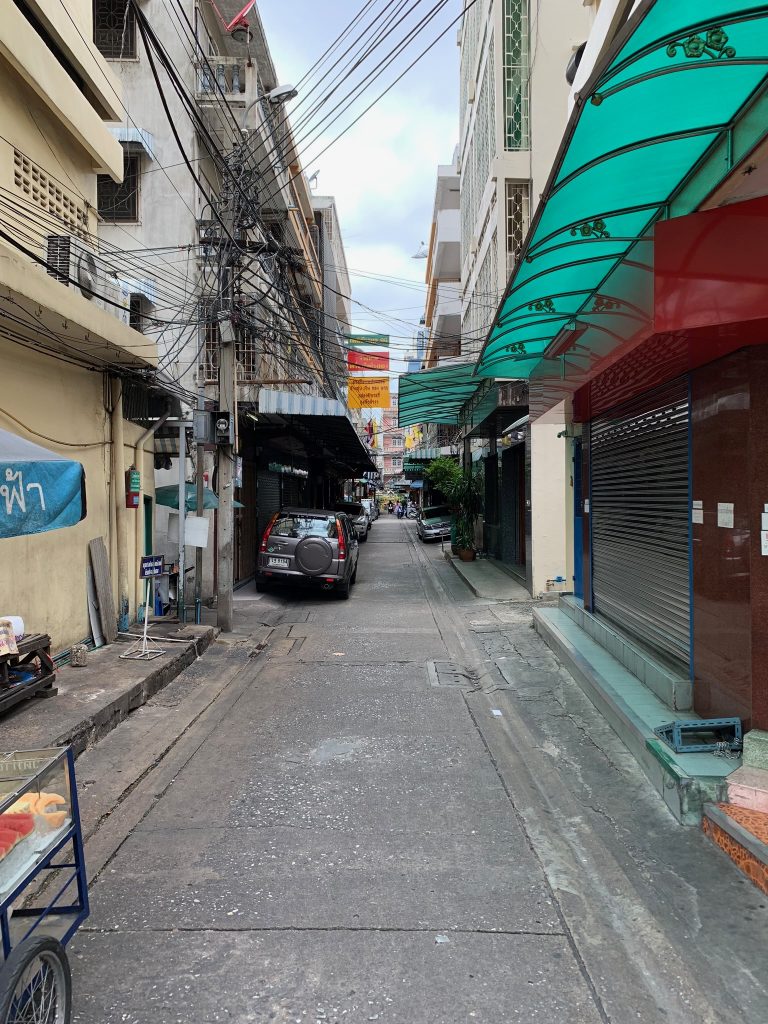
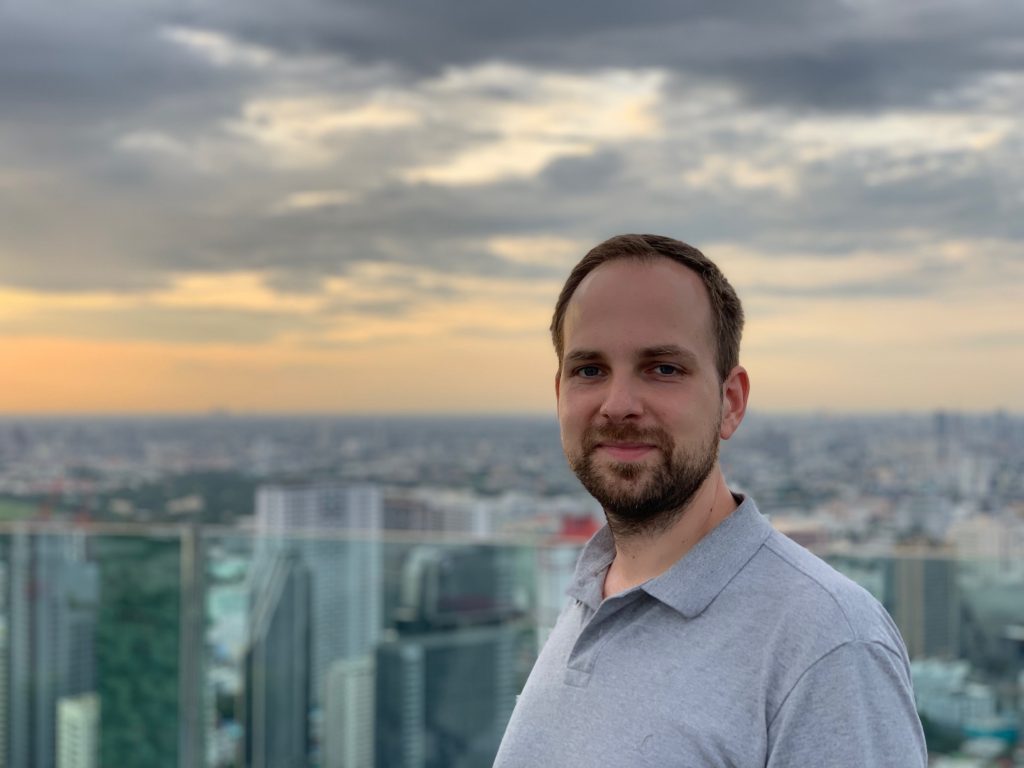
Economy ¶
I wasn’t aware that Thailand until recently lived mainly from fruit and rice exports, until floods and droughts permanently destroyed all the fields. Now Vietnam is the export champion of the region, and Thailand has set the course to promote tourism economically even more strongly, so it’s now the main source of income.
Traffic ¶
Like everywhere in Asia, there are very many scooters that sort themselves into the flowing traffic in a neck-breaking manner (to put it positively). We told our local guide about traffic in Germany. She didn’t understand at all how you’re supposed to get anywhere when you constantly have to stay in your lane.
Last time I was in Asia, I rode scooters on Bali. And I have to say that more traffic rules are enforced here than in Indonesia. Here, scooter riders without helmets are also occasionally fined. And we were there live when our Grab driver’s car was impounded by the police because he didn’t have a license for passenger transport.
Grab – you can think of it like Uber. People who want to earn something extra drive guests around in a private car. It’s arranged through an app. From the driver’s perspective, it’s probably like GTA: Your phone rings, someone gets in, you’re shown where you need to go – and at the end, money magically appears in your account.
We quite like using it to get around the city here. You can be sure you won’t get ripped off, and for the equivalent of 2-3€ you can get almost anywhere in an air-conditioned car.
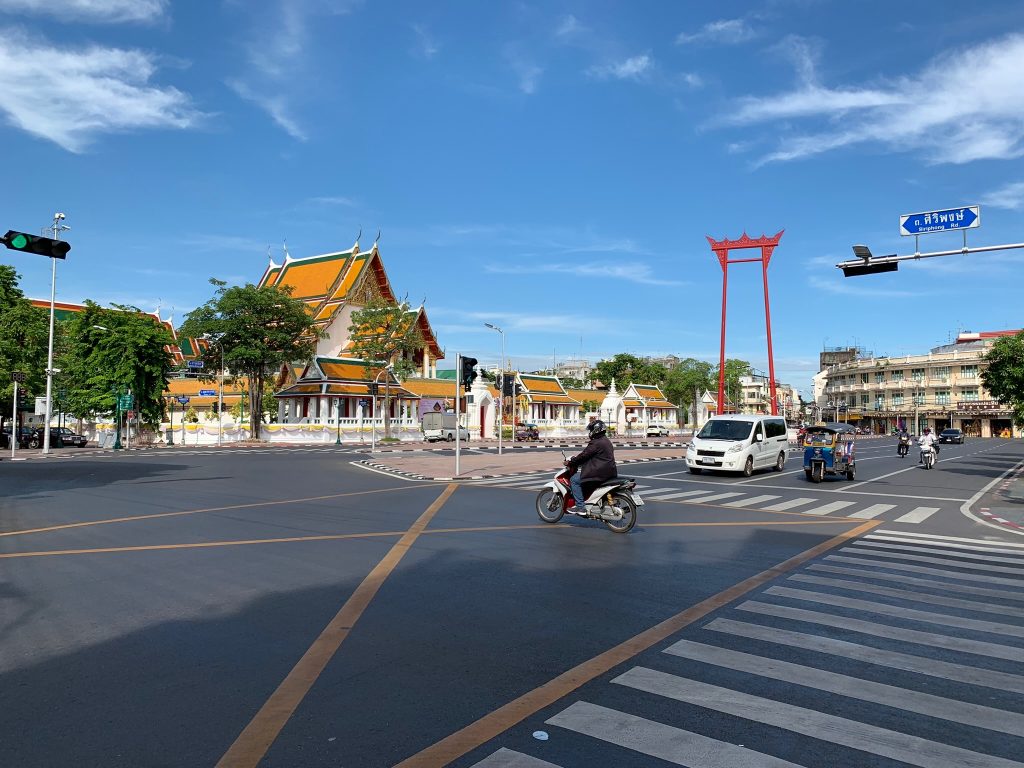
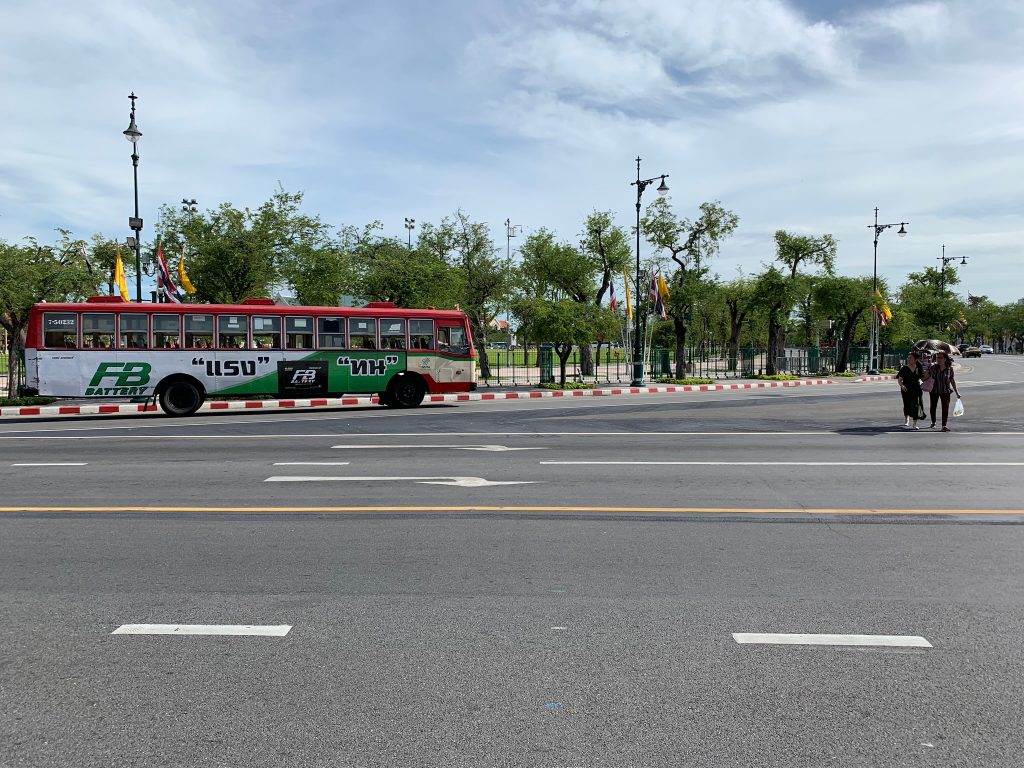
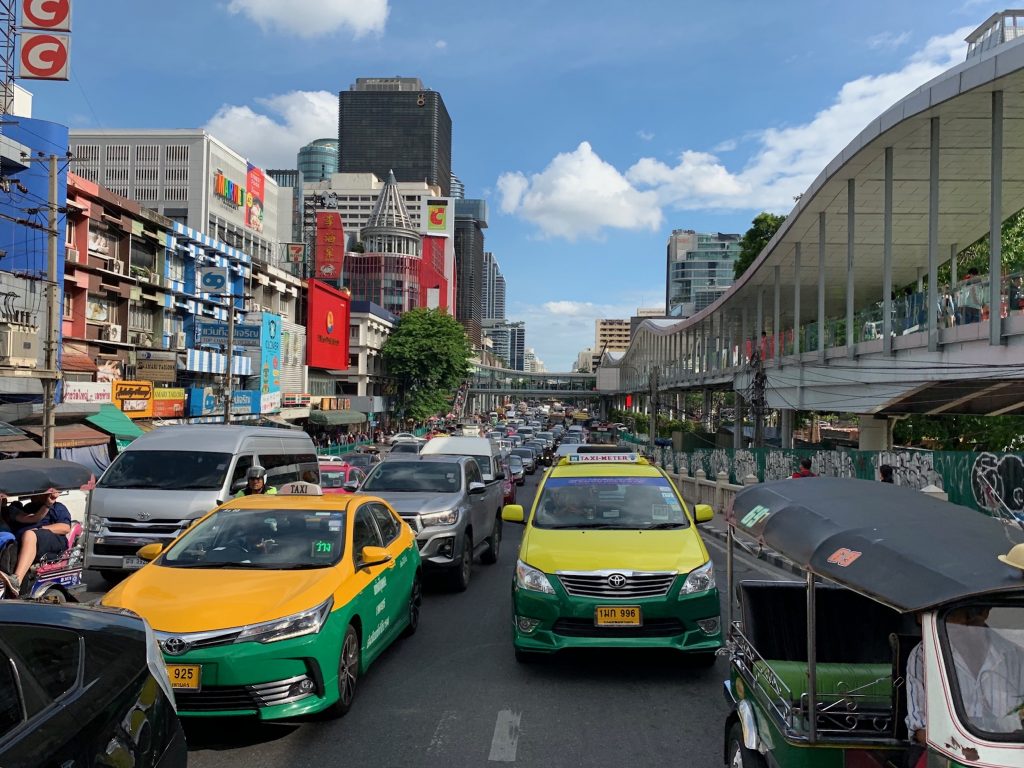
Klongs ¶
Klongs are the canals that run through Bangkok. Longtail boats travel on them, equipped with engines from Japanese trucks.
Klong – It not only sounds like a wrench falling to the ground; the driving feeling on such a longtail boat isn’t far from it either. You can imagine it roughly like crossing a tractor with an inflatable boat – and then going crazy in a sewer canal. My personal highlight of the day.
The houses along the klongs are built in traditional style – from wood and corrugated iron, on stilts. When one rots, it’s replaced by a new one next door. This ensures structural integrity in an organic way.
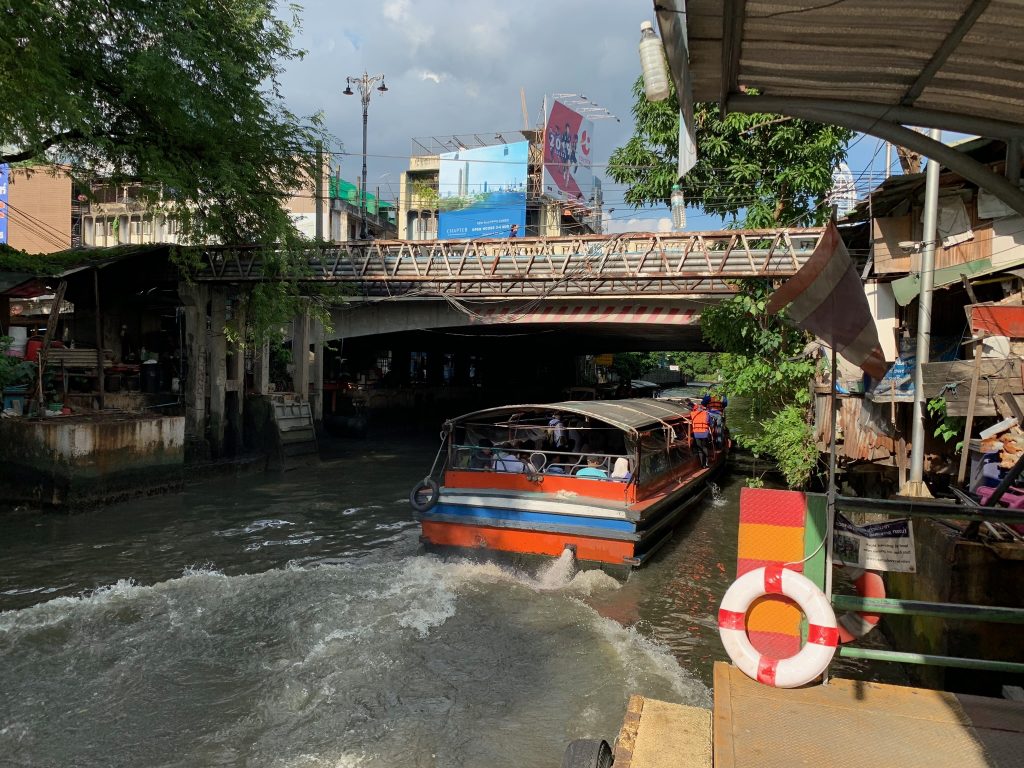
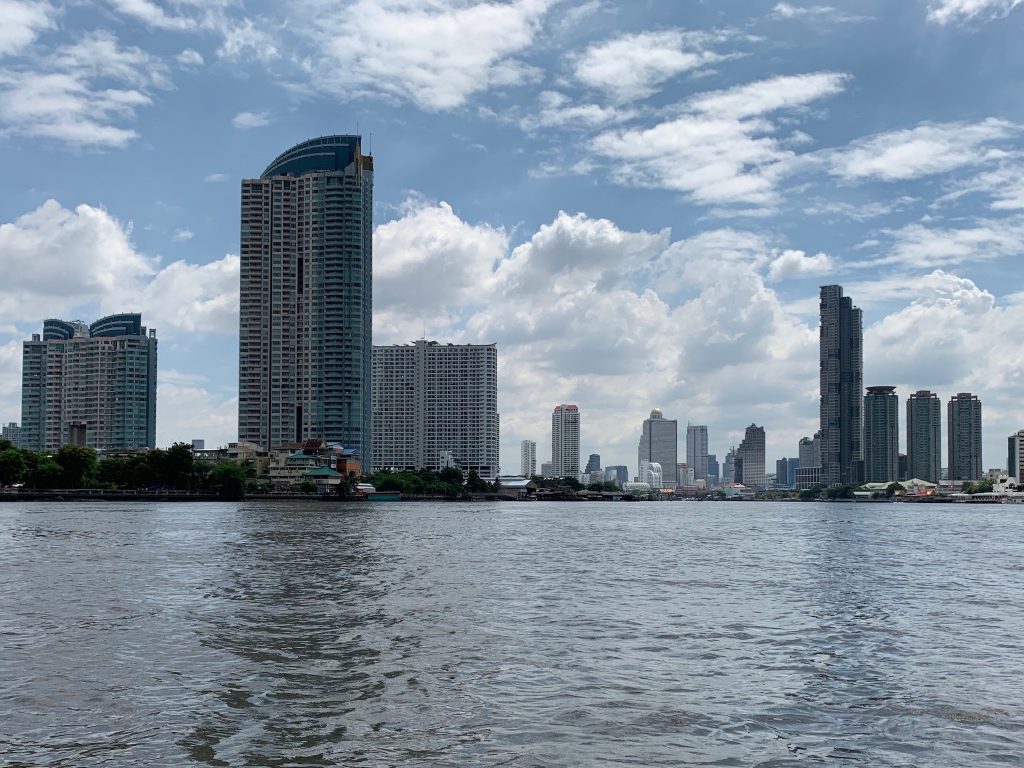
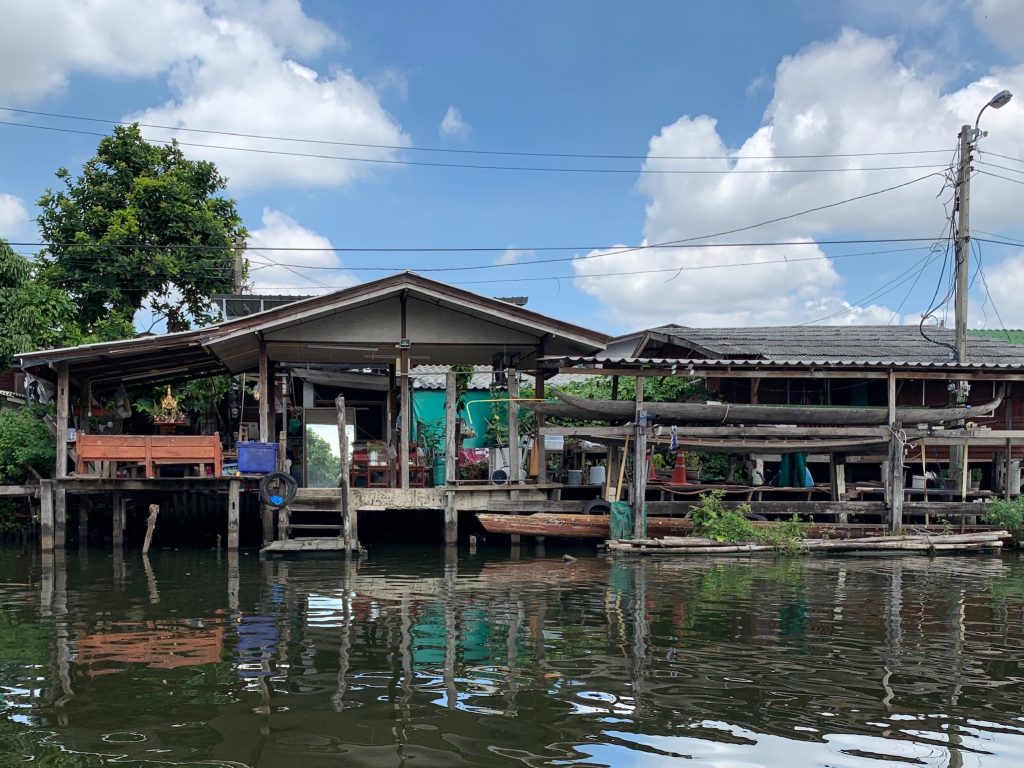
Faith ¶
Once in their life, a young adult here goes to the temple for an arbitrary length of time. A week or a whole year. Otherwise, it seems common when you’re facing a more difficult private problem to simply go to the temple for just a few days until you’ve solved it. Very sympathetic approach. We in the West also wish for a little time out now and then – in Thailand it seems more socially accepted to me. For this reason, no one here seeks psychological help, as it’s associated with an even higher stigma than with us.
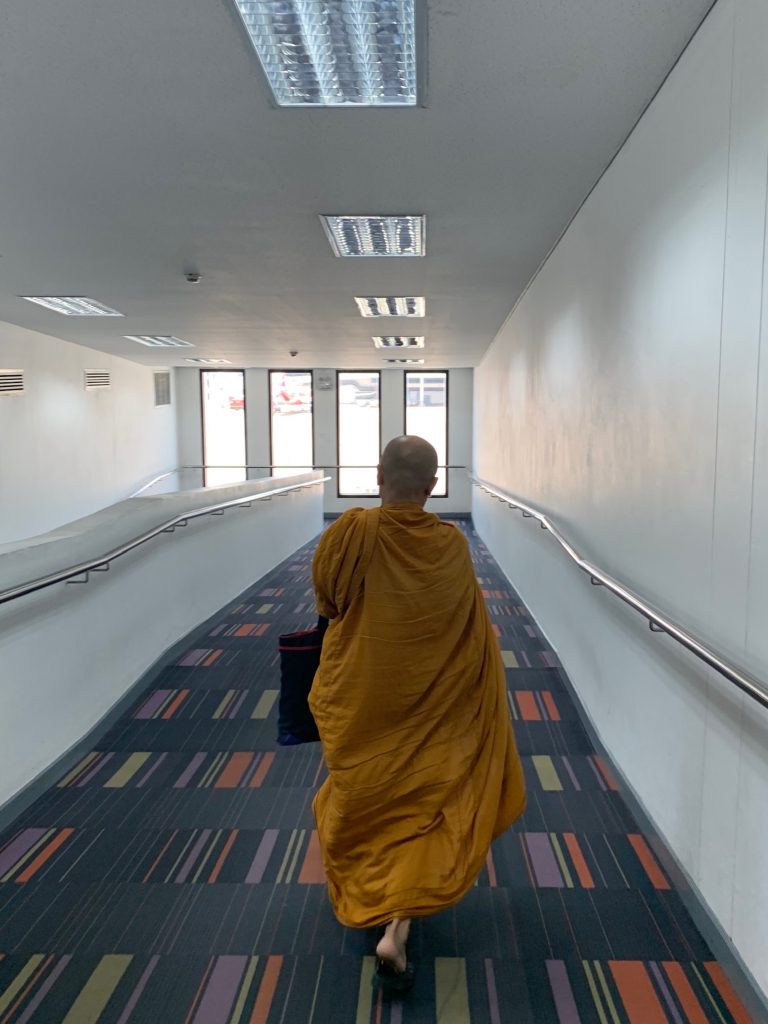
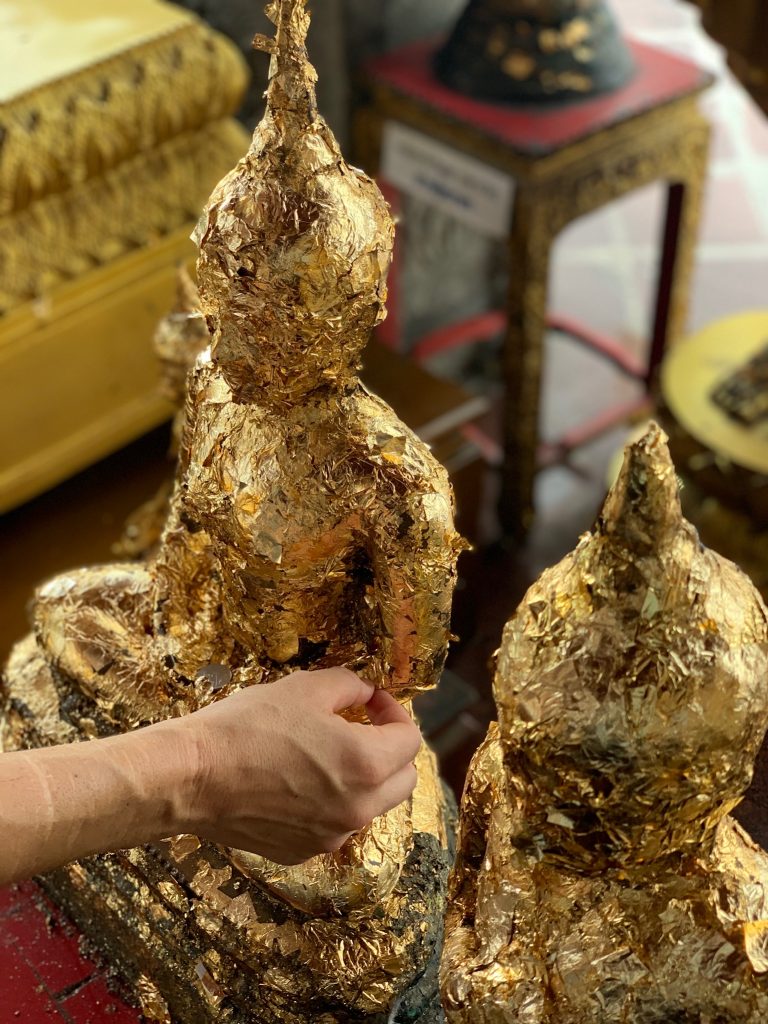
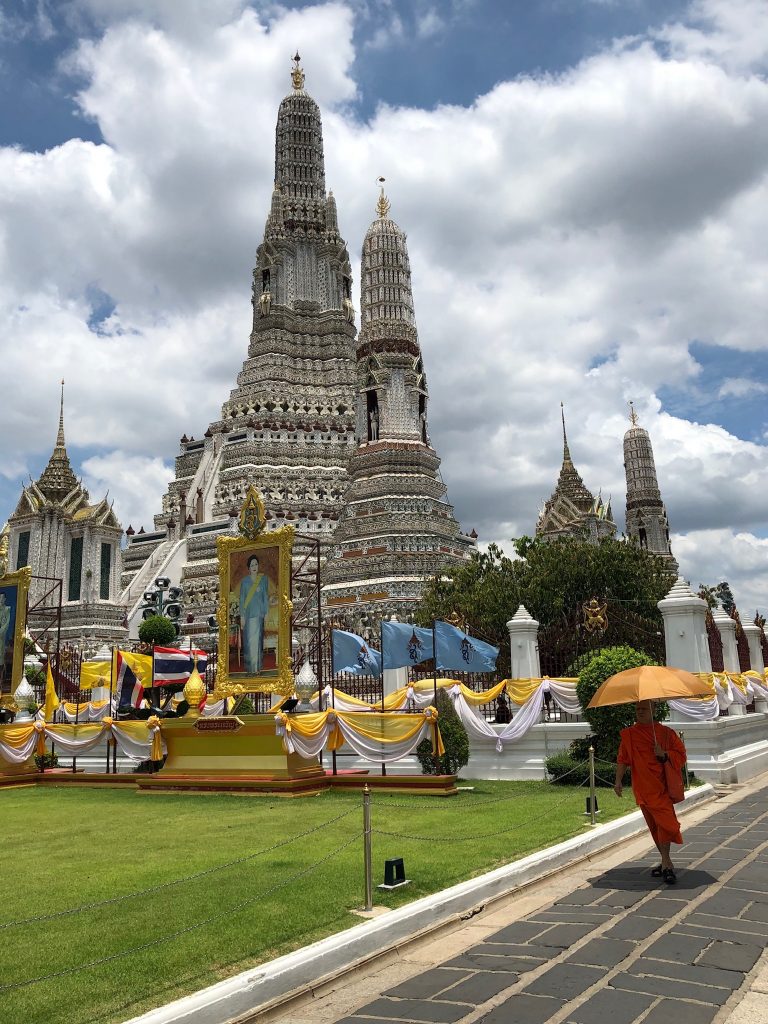
Buddhism ¶
I also think about the belief system of the Thais. It’s superficially Buddhism, but not as it meets us in the West (in isolation). There are also strong influences from old nature religions (belief in good and evil spirits) as well as superstition, in the form of lucky charms and amulets.
This irritates me, as Buddhism as a worldview in my (Western) understanding is diametrically opposed to such superstition. On the other hand, you can also see beautifully how a society is in transition here – just later than we in the West. Christianity also needed over a thousand years until it was predominant – and shortly thereafter it was directly reformed.
Perhaps that’s exactly the ideal of freedom: to choose life views and goals without claiming eternal validity for them. Principles aren’t less sacred just because their durability can’t be guaranteed. (Inspired by Isaiah Berlin)
Street Food ¶
Food seems to have a very high status in Thailand in general. At home, cooking is only done in the family circle, otherwise everyone here seems to get something from the next street food stall instead of cooking themselves.
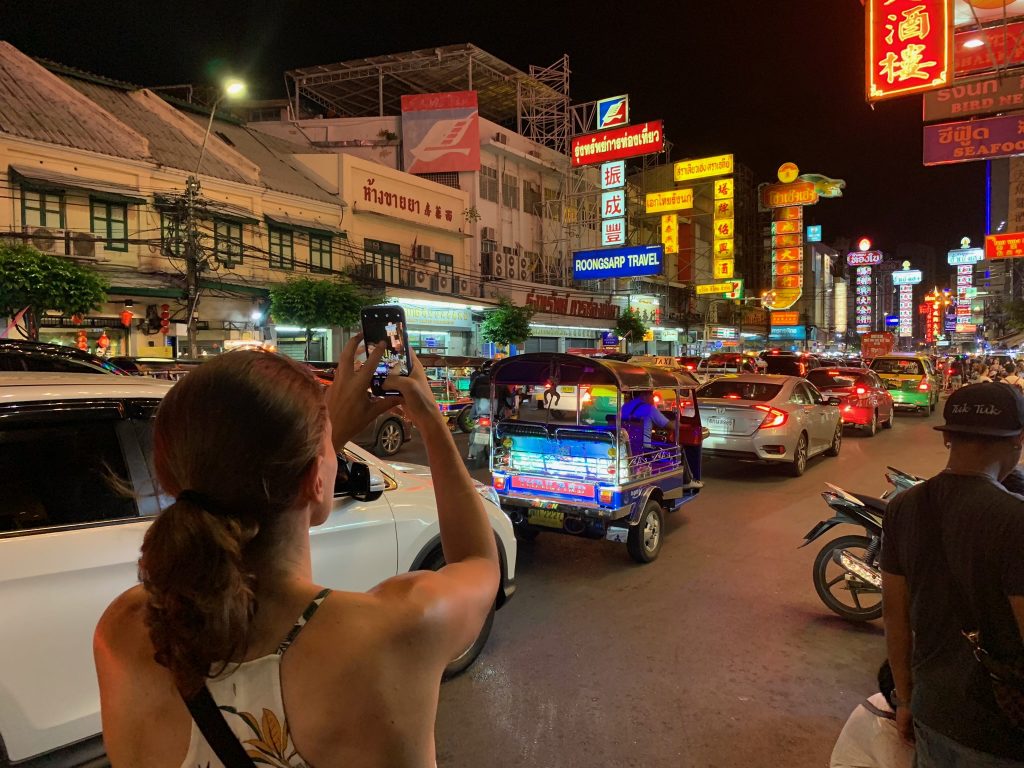
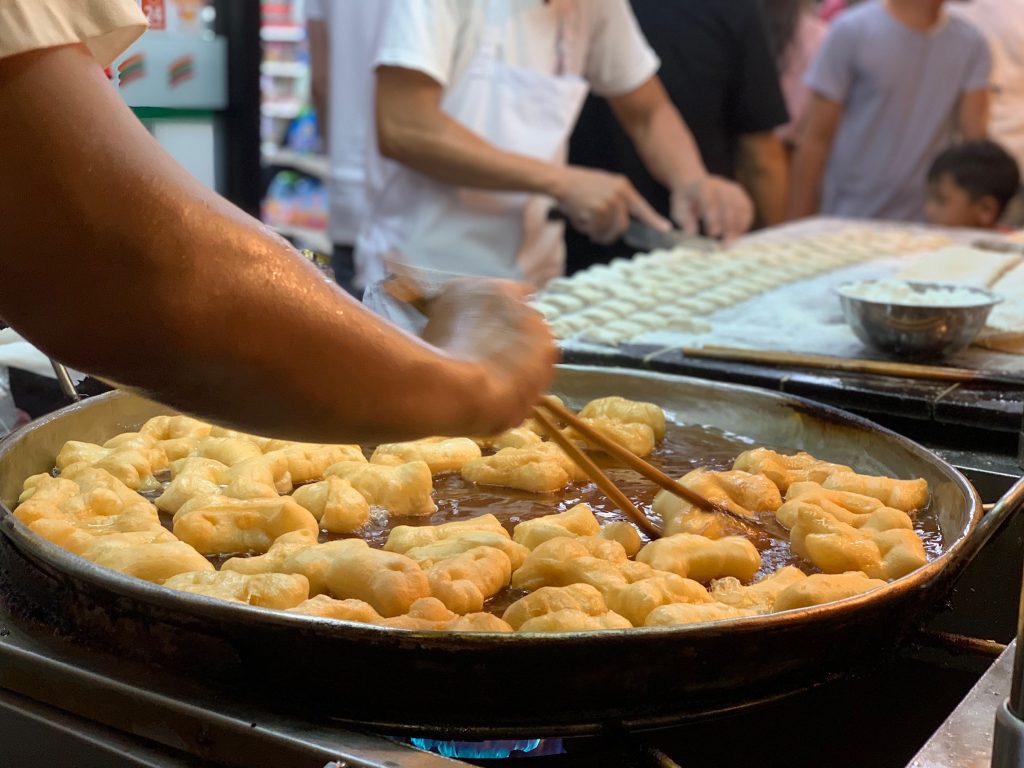
Jay Fai ¶
Jay Fai is a 70-year-old street food chef who cooks alone, in rubber boots, wool hat, and ski goggles, over charcoal. For this, she was awarded a Michelin star as the first street food ever and recently got a Netflix documentary. And I have to say: deservedly so. And not just in small portions as you’d expect from a star, but really full plates and then just eat until food coma – at an incredibly high level.
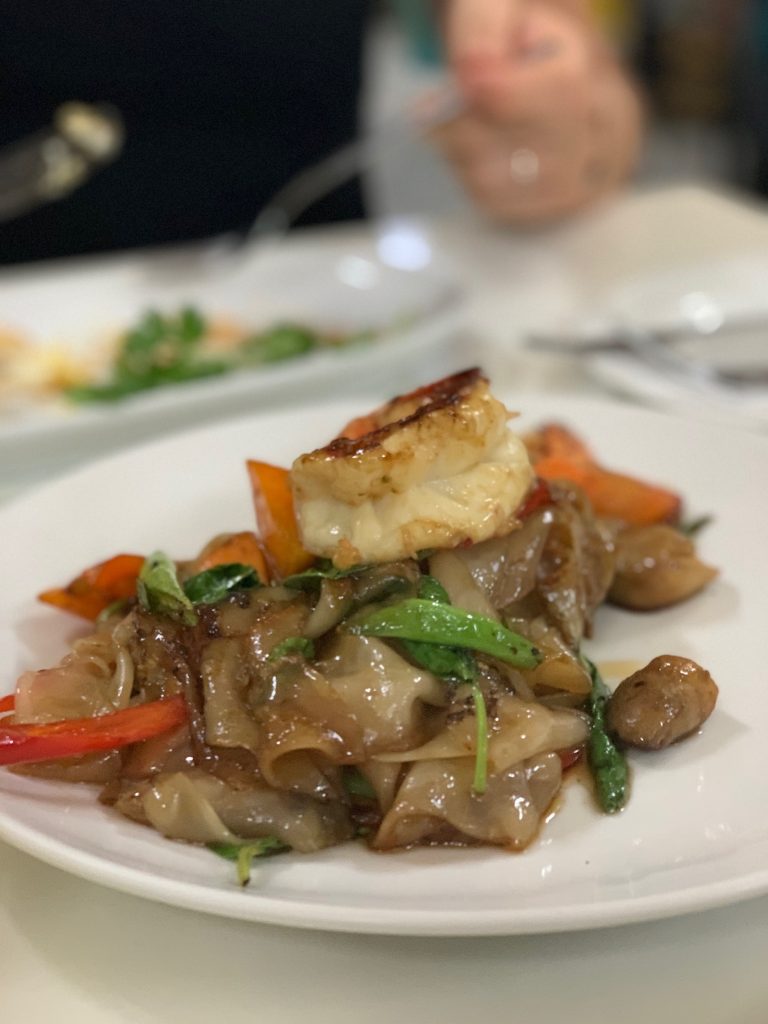
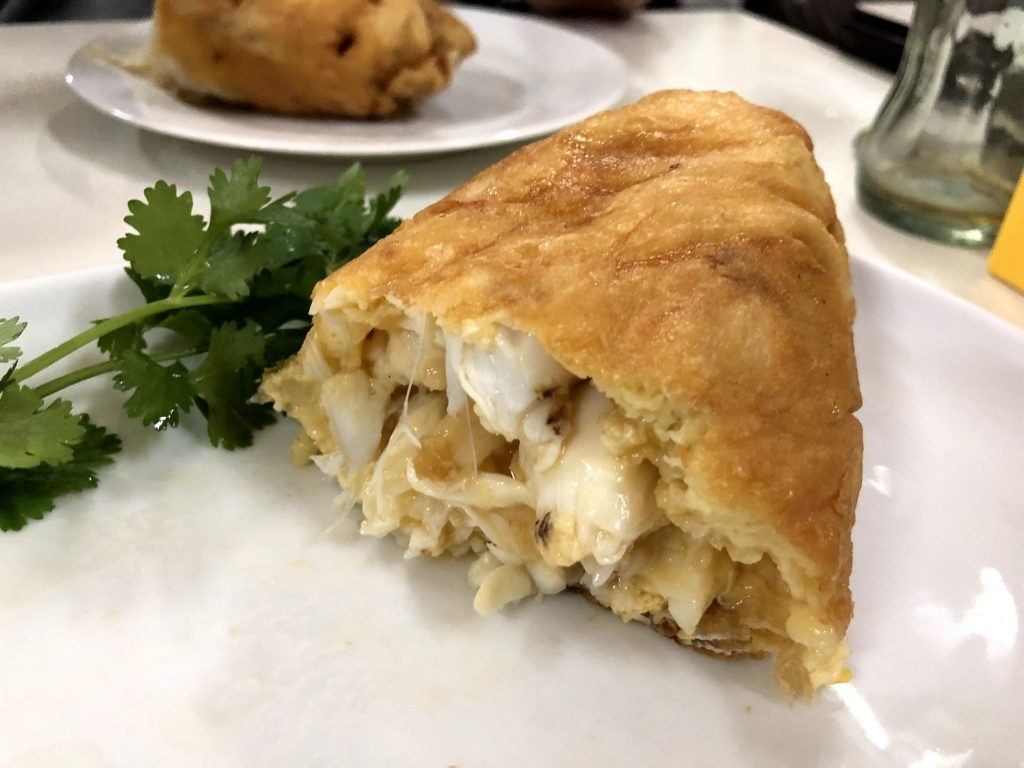
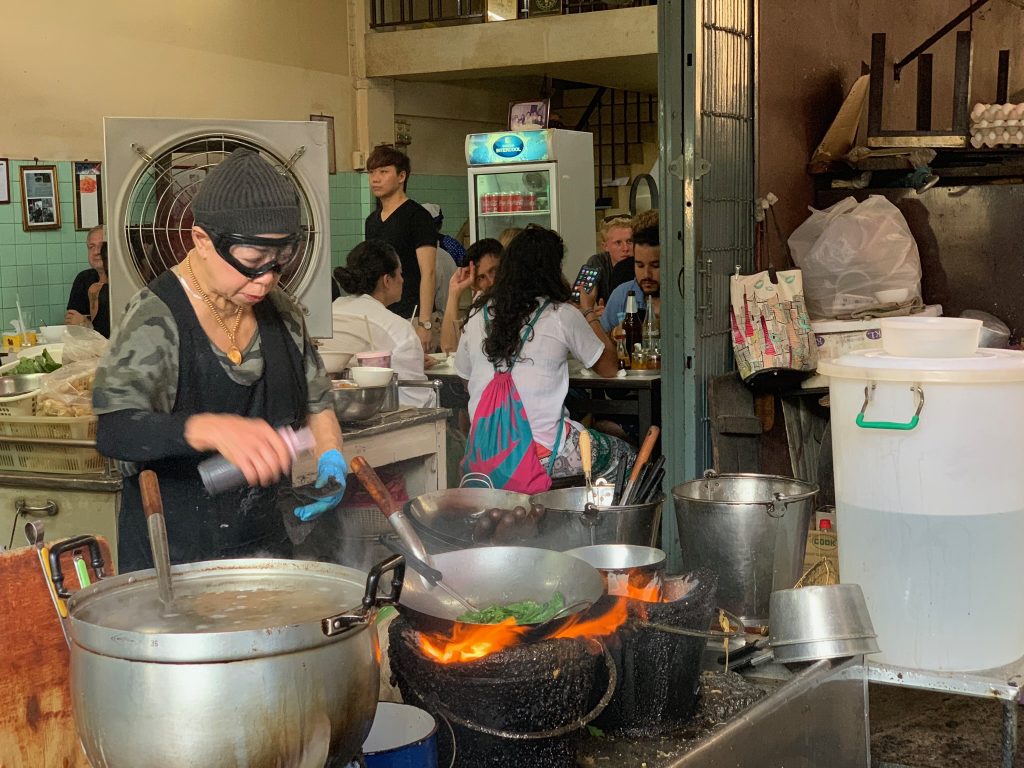
Ko Pha-ngan ¶
Next stop on the journey, trading the metropolis Bangkok for a mini-island. The whole island life pulses here. The water supply pulses the water jet, the lights pulse through electricity fluctuations… Sometimes the electricity goes out completely – but also life. But mostly it’s quickly back. Tourists are brought in, each gets an individually unique experience generated, then taken away from the island again.
As a tourist, you quickly get the hang of it if you surrender to the pulse and go with the flow. Everything is very well developed here. You can get to everything quickly, so it’s good for someone over 30 to chill, but not much more. The actual USP of the island is the famous-infamous Full Moon Techno Party. Then the pulse gets a bit out of sync. Then there are too many people here. And then the electricity also fails on a large scale to power lights and sound. But most party guests turn off their own lights (through excessive alcohol consumption). So everything fits again.
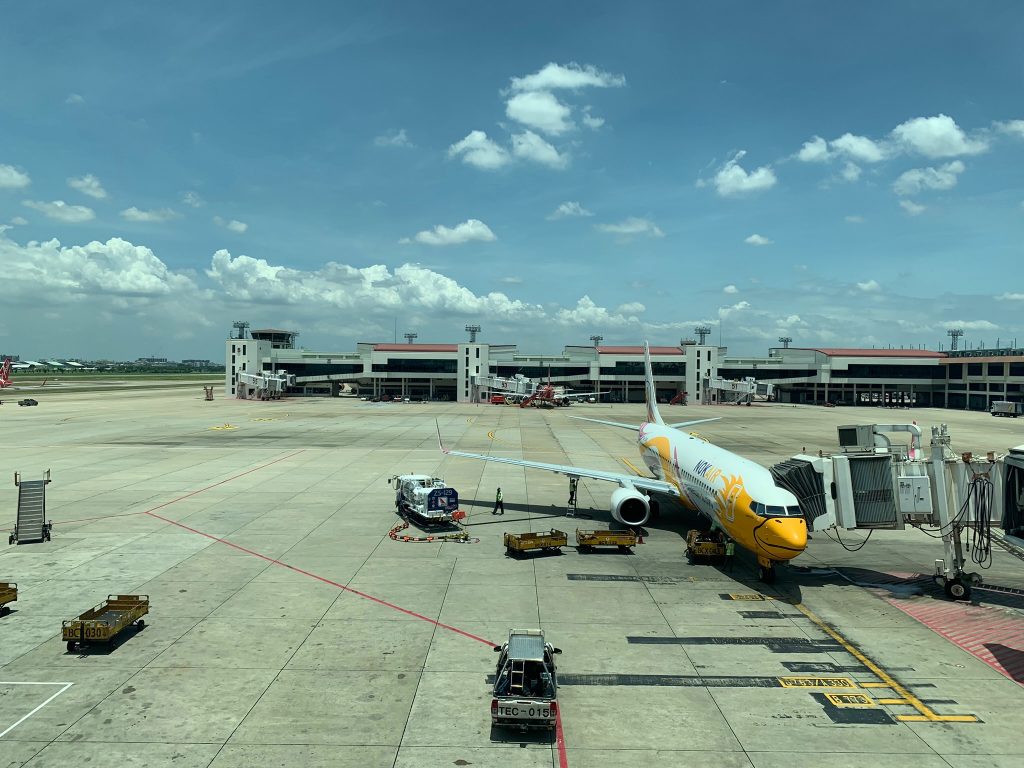
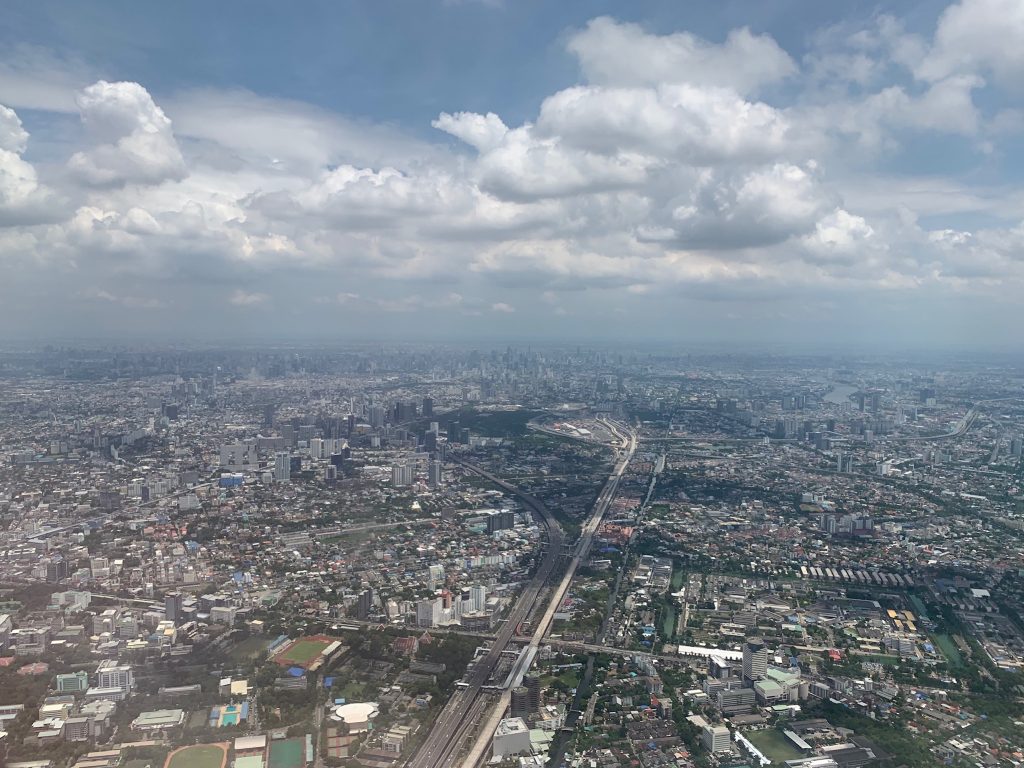
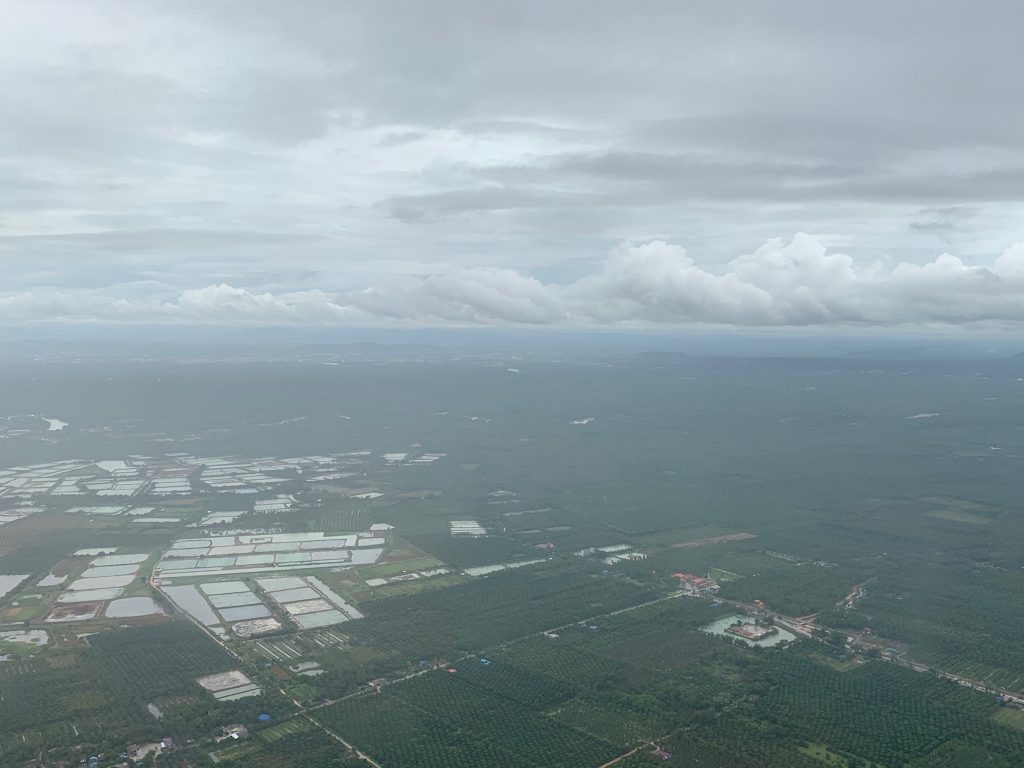
Songthaew ¶
It’s striking that everything here on the island costs the same. Laundry, massage, scooter, taxi – always a uniform price. The quality is also always comparable, so at least less chance of fraud than in Bangkok. You can tell they depend on tourists. With the shared taxis (Songthaew), there’s even a kind of pimp. This one distributes the tour